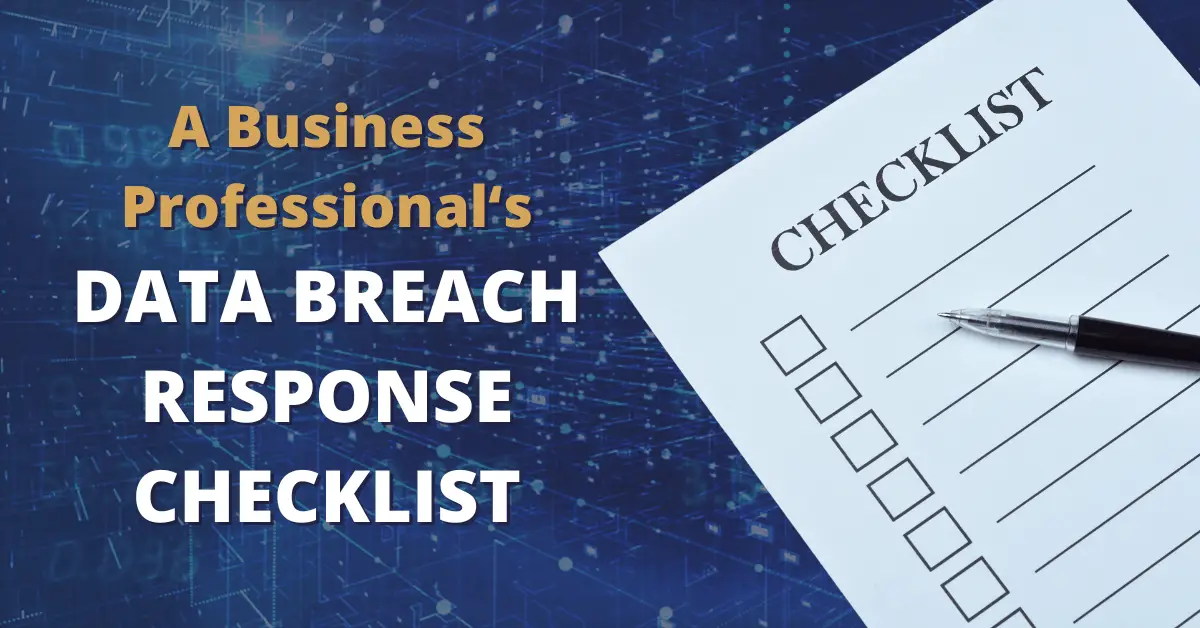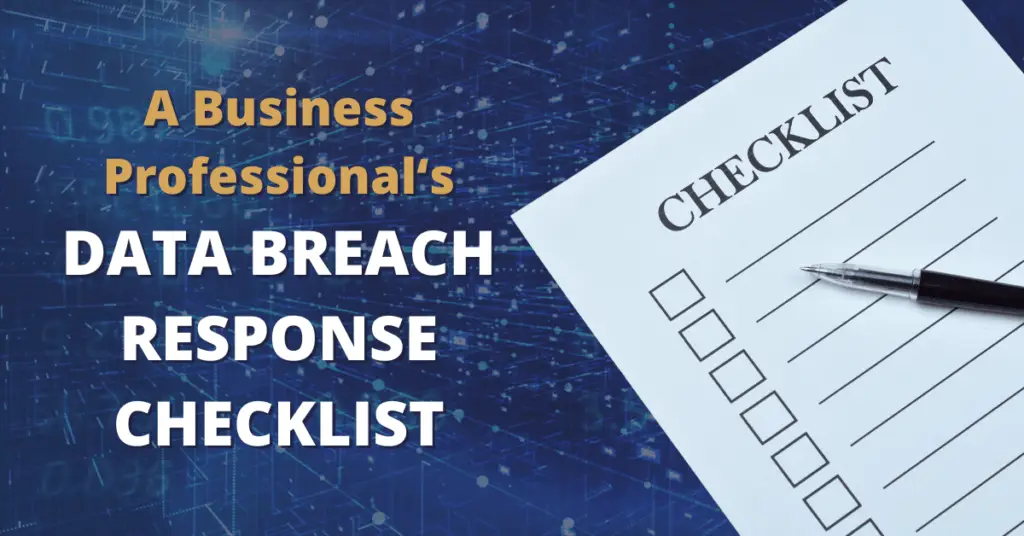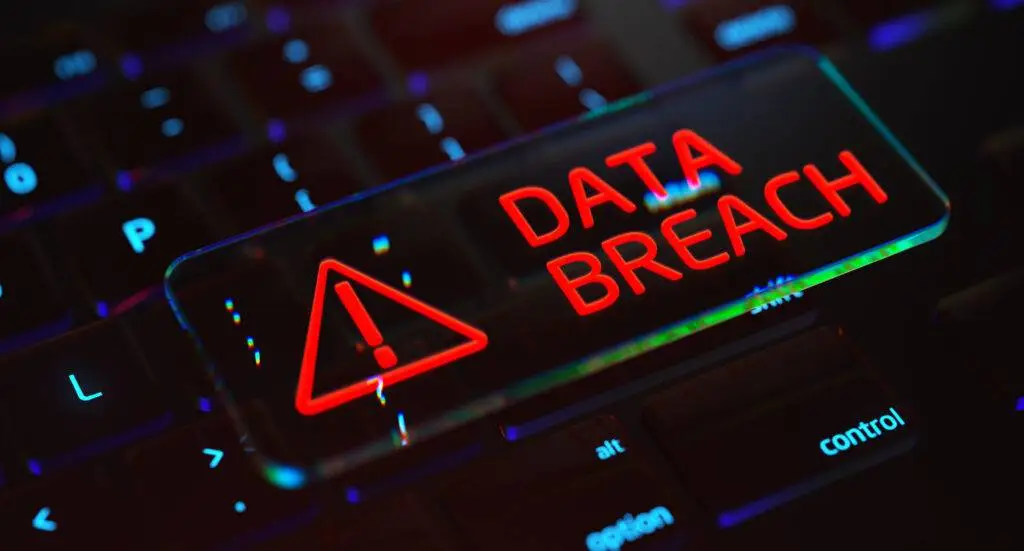A Business Professional’s Data Breach Response Checklist


Data breaches are a depressingly common risk for modern businesses. The repercussions of a data breach can be severe, affecting not just the financial bottom line but also the trust and loyalty of customers. Your business’s steps to prepare for, during, and following a data breach are critical. Regardless of your role during a breach event, knowledge, and preparation are key to your ability to make insightful contributions to the process. To help with this, use our checklist to prepare for a data breach, navigate the aftermath, and reduce future risks.
Immediate Response
- Detect and confirm: Swiftly identify and confirm the breach. Implement your incident response plan immediately to limit further data loss.
- Assess the damage: Determine the scope and impact of the breach. Identify which data was compromised and assess the potential harm to affected individuals and your business.
- Notify authorities and affected parties: Inform the relevant authorities as soon as possible. In the EU, the GDPR mandates notification within 72 hours if the breach poses a risk to individuals’ rights and freedoms. Affected individuals should also be informed promptly if there is a high risk to their personal data.
- Engage your Data Protection Officer (DPO): If your organization has a DPO, involve them immediately to guide the response process and ensure compliance with data protection laws. (If you do not yet have a DPO, hiring one promptly is an important preventive step.)
Containment and Recovery
- Secure your systems: Take necessary steps to secure your systems and prevent further data loss. This may involve isolating compromised segments of your network, changing passwords, and deploying patches.
- Forensic analysis: Engage cybersecurity experts to conduct a thorough investigation into how the breach occurred and to gather evidence for potential legal actions.
- Plan for recovery: Develop a recovery plan that includes restoring data from backups, repairing system vulnerabilities, and implementing additional security measures to prevent future breaches.
Post-Breach Actions
- Review and update security policies: Analyze the breach to understand its cause and your response’s effectiveness. Update your security policies and procedures based on lessons learned.
- Enhance security measures: Invest in stronger security technologies and practices, such as encryption, multi-factor authentication, and regular security audits.
- Training and awareness: Conduct regular training sessions for your employees on data protection and security best practices.

Legal Compliance and Documentation
- Document everything: Keep detailed records of the breach, your investigation findings, and the steps taken in response. Documentation is crucial for legal compliance and may be required by regulators.
- Review legal obligations: Ensure that your response aligns with legal requirements, including those under the GDPR in the EU and any relevant US state laws. Consider consulting with legal counsel to navigate complex regulatory landscapes.
Ongoing Monitoring and Review
- Monitor for further incidents: Implement monitoring tools and procedures to detect any subsequent suspicious activities early.
- Regular review and testing: Regularly review and test your security measures and incident response plan to ensure they remain effective against evolving threats.
Dealing with a Data Breach
In the wake of a data breach, timely, transparent, and comprehensive action is essential to mitigate risks and rebuild trust. By following this checklist, business professionals can navigate the complexities of data breach response, ensuring compliance and the protection of their organization’s and customers’ interests.
But without a detailed understanding of how data privacy and data security work, preventing a data breach—or responding to one—can be a struggle. That’s where our team comes in. We’ll help bring your organization up to date on effective data privacy and help to strengthen your organization’s resilience against future threats. Get in touch with our team today to schedule a call.





